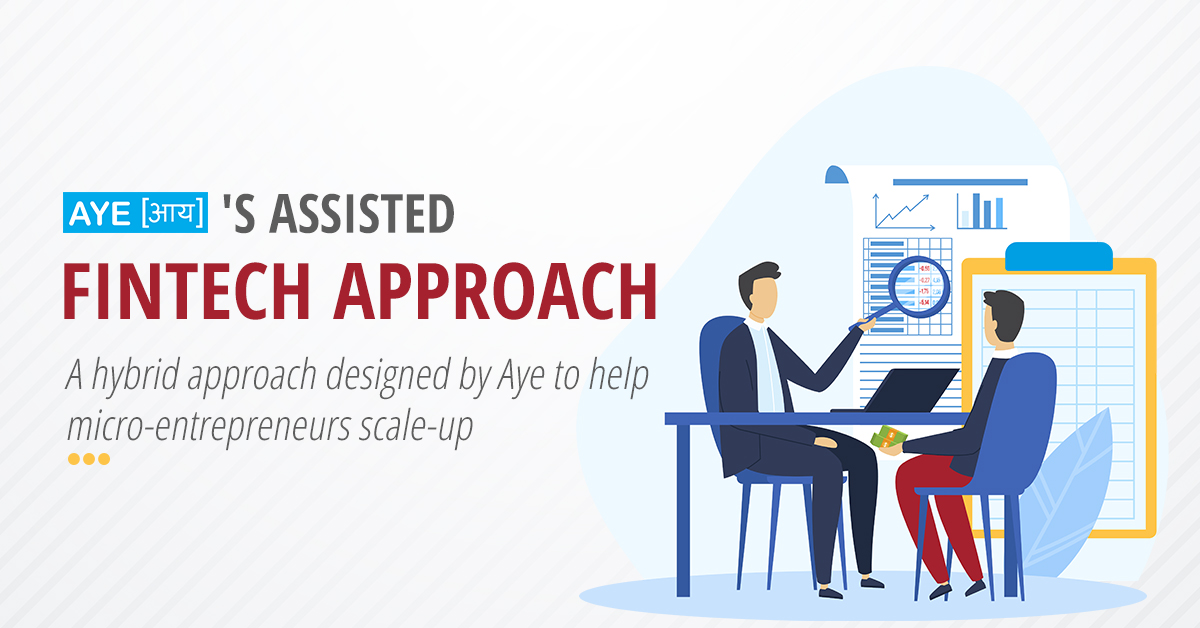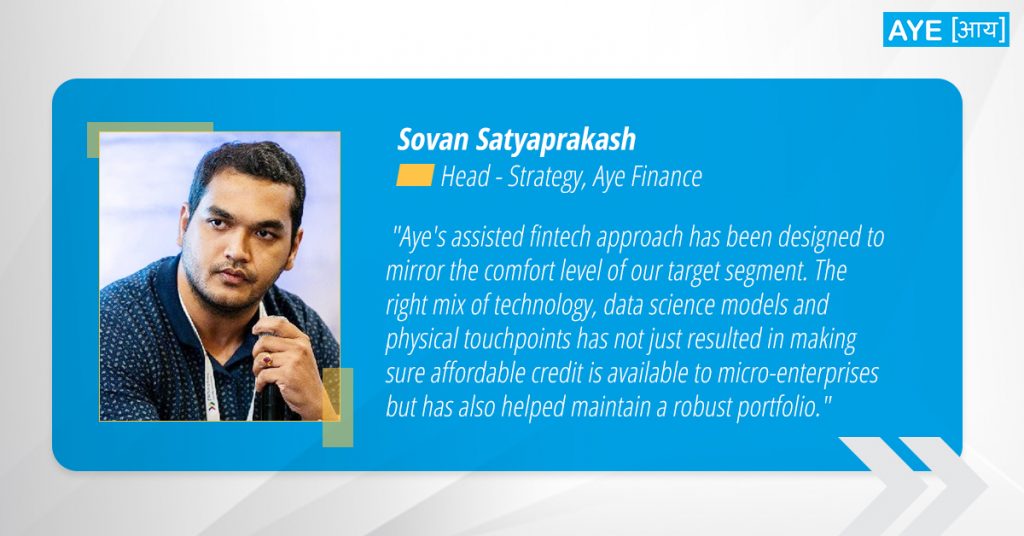At Aye, we have been dedicated to revolutionizing MSME lending in India. Our goal was to transform it from a costly and tedious process to an efficient and impactful business opportunity. In March 2014, Aye Finance took its first step to remodelling micro-enterprise lending in India. Not only has it brought over 2,00,000 micro-enterprises into the fold of organized lending, but it has done so profitably.
Aye has addressed the credit requirements of this segment by developing an innovative and efficient solution. Keeping the segment’s limitations in mind about accessing online platforms for credit and addressing the need for adopting new technology for cost efficiency, we designed the ‘Assisted Fintech Approach’ to provide affordable credit to these businesses. The successful implementation of this hybrid approach has consistently delivered success for Aye Finance.
An Untapped Resource
There are over 60 million micro-enterprises in India facing a credit deficit of over INR 16 trillion. A business opportunity of this scale should have financial institutions scrambling over each other to address this demand. Coupled with the potential these millions of unorganized micro-entrepreneurs have, to boost the nation’s economic gain: this sector is endlessly lucrative for banks and traditional NBFCs. Then why does this segment continue to be overlooked?
The truth is that there are multiple obstacles when lending to this segment and over the years, efforts made have yielded mixed results. The challenges ranged from insufficient information about these businesses to the lack of digital footprint. Along with that, the modest loan requirements make lending to micro-enterprises an unattractive business proposition.
What is Aye’s Assisted Fintech Approach?

This hybrid approach has been designed by Aye Finance to mirror the comfort of the business owners and provide affordable credit to micro entrepreneurs by:
- Leveraging technology to build efficiency in the process and reduce turnaround time
- Capturing information available at business premises to solve the information asymmetry problem
- And finally, to give sound financial advice to these entrepreneurs to empower them to make informed decisions
As Sovan Satyaprakash, Head – Strategy, Aye Finance says, “Aye’s assisted fintech approach has been designed to mirror the comfort level of our target segment. The right mix of technology, data science models and physical touchpoints has not just resulted in making sure affordable credit is available to micro-enterprises but has also helped maintain a robust portfolio.”
Aye has set up lean branch structures across 211 cities in India. With an efficient team that works at the ground level and directly interacts with micro-entrepreneurs, this approach ensures a smooth experience for the customers.
The team takes the business owners through all the onboarding and evaluation processes while also providing them with post-disbursal services. Every Aye employee talking to customers is also aware that their clients are new to formal financial services. Apart from making them aware of digital payments and banking habits, we also focus on educating our customers about the benefits of maintaining a good credit history.

Measuring Our Success
To manage the risk while being innovative and radically reduce operating costs, Aye has moved away from the traditional “people and judgement-intensive” approach and designed its proprietary underwriting engine based on the “Cluster-based Credit Assessment” methodology. Drawing insights from the data about each cluster and using behavioral risk scorecards, Aye can lend to each segment effectively. This has helped Aye serve and empower a segment which has traditionally been ignored by financial service providers.
The lending process has been designed to ensure low unit cost of loan origination. By developing processes on a cloud-based android CRM platform that integrates the loan origination, assessment, disbursal, servicing and collection processes, we have allowed for improved accuracy levels and turnaround times.
Aye has also developed predictive AI/ML models to effectively control the error margin and maintain the quality of its asset book. The value of the data driven assessment tools and collection algorithms are evident when one looks at its NPA levels that have remained below industry levels since the very beginning.
Combining technology with a people-centric approach has allowed us to take transformative steps towards integrating micro-entrepreneurs into the formal economy. What’s more? We’re just getting started.










